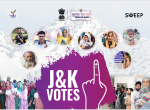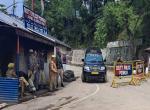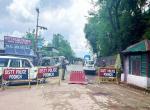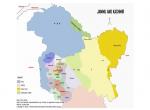No state can survive if it overlooks the collective act of violence by its subjects. It is not only unlawful but a revolt against the constitutionally elected government. Allowing people to take law in their own hands is undermining the authority of a state, and if political dispensation of the state overlooks such anarchic violent acts, it loses the moral authority to rule the state. State cannot indulge in appeasing murderous crowd to buy temporary peace or to gain political mileage by compromising national interests.
Today, the proxies of Pakistan are increasingly applying passive strategies to blunt the counter-terrorist operations in the Kashmir Valley. The Hurriyat and the terrorists are trying to disrupt the impact of army operations in Kashmir Valley by creating unfavourable political conditions and driving a wedge between army and political leadership of the state. In the recent past, terrorists were hit hard by surgical operations and separatists were tamed by strangulating their source of funding. The only way to slow down the tempo of operations was to involve the Army in legal and human rights issue to discourage ground troops to act against the stone pelters and terrorists. It is a strategy to reclaim the space that security forces were able to regain from the separatists and terrorists.
On 27 January 2018, a murderous crowd of approximately 200 people started pelting stones on an army administrative convoy causing extensive damage to the vehicles and seriously injuring the occupants of the vehicles. Initially, the soldiers maintained restraint and drove through the intense stone pelting, but the aggressive crowd attempted to force a part of the convoy to stop. In the meantime some soldiers had sustained serious injuries and perceiving this as an opportunity, the stone pelters came dangerously close to the vehicles with an intent of lynching the soldiers and burning the vehicles. The soldiers were left with no option but to fire in self-defence that left two stone pelters dead and injured a few others. In spite of extreme provocation the soldiers maintained restraint and exercised extreme caution while using minimum force. Although the soldiers were equipped with lethal automatic and heavy weapons, they refrained from using them against the stone pelters. Had the soldiers opened indiscriminate fire with automatic rifles and guns, a bloodbath would have ensued. The state government reacted in a haste and ordered an FIR to be file a case against the soldiers under multiple charges of murder and attempt to murder. There has been political sabre rattling since then, with some declaring the murderous stone pelting crowd to be innocent citizens and blaming the Army for excessive use of force; however there are others who termed the actions of the state government as appeasement of separatists.
More than the legality of the case, the incident has raised certain serious questions about the operational freedom of the security forces and their right to act in self-defence. The other question it raises is: Is stone pelting a part of a larger strategy to subvert operations against terrorists and create ‘no go’ areas? Has the political leadership of Kashmir acted under pressure from separatists and proxies of Pakistan?
Some Questions to be Considered
Is Stone Pelting just an Expression of Anger or an Act of Violence: Most of the politicians from the Kashmir Valley have been echoing the view that stone pelting is not an act of terror but an ‘expression of anger’. An expression of anger cannot be justified if it disrupt counter-terrorist operations and threatens lives of soldiers while they are performing their mandated duty. At the same time, putting hurdles on the way of a soldier who is discharging his state-mandated duty on anti-terrorist operations is a serious crime - ‘expression of anger’ cannot be an excuse to indulge in that crime. It is high time that the Centre and the state governments promulgate stone pelting to be an act of grave violence, so that the Army and State Police can act against the perpetrators appropriately. Stone pelting cannot be allowed to continue because it will spread to other parts of the country – in fact, that has already started - and no force will be able to deal with this menace, if it is not checked now.
Right to Use Force in Self Defence: Whether it is a soldier or a common man on the street, both have the right to self-defence. In this case soldiers have a greater responsibility, because they not only have the right to defend, but also to restore peace and protect government property entrusted to them. Even if there was no Armed Forces Special Power Act (AFSPA), the soldiers were well within their right to fire in self-defence. The political leadership and the bureaucracy are not expected to fight with guns or lead men during combat, but they are supposed to strengthen the hands of the security forces by anticipating and plugging legal and procedural gaps to ensure operations are not disrupted and soldiers are not prosecuted for acting in self-defence and line of duty. Notwithstanding the above, the responsibility to use minimum force even under provocation remains with the military commander.
Who Should Exercise Control over Lines of Communication: The State Government and police have missed the point when they advised the Army to restrict movement on certain roads. The larger strategy of the separatists and terrorists is to disrupt, restrict and deny movement to security forces in Kashmir Valley. If they achieve this by coercion, connivance and contesting through a combination of stone pelting and acts of terror, they will be able to create liberated zones within the Valley. The People’s Democratic Party (PDP) Government and the Jammu and Kashmir Police (JKP) will be committing a monumental mistake if they attempt to restrict movement of the Army by denying them the freedom of movement for operational and administrative purpose. That, no doubt, will seriously impair the operational tempo of the security forces. It will create ‘no go’ areas and that will be disastrous for the bona fides of the State. The JKP should see through the strategy of separatists and instead of asking army to avoid certain sensitive roads it should assist in ensuring all routes are kept free from obstruction and disruption by stone pelters. Even the State Government should insist on keeping road axis open and should not succumb to the threat or coercion. The actions of the State Government to allow separatists, terrorists and stone pelters to control the lines of communication would make the anti-national’s strategy of disruption succeed. The Government and police must assist army in ensuring that the strategy of denial of access to the security forces is defeated and culprits are booked.
Is Stone Pelting a Strategy to Create ‘No Go’ Areas: If the army is restrained from operating in an extremely hostile environment where the police and Central Armed Police Forces (CAPF) avoid venturing, it will mean creating a ‘liberated zones’ across the Valley. Built up areas have already become ‘no go’ areas more or less. As such, hardly any operations are being undertaken in Srinagar, downtown Baramulla, Shopian, Pulwama and even Kupwara towns. This should be seen through the prism of a strategy designed to restrict the areas of operation of the Army, so that separatists and terrorists can operate with freedom and run their writ in these areas. Is it a passive strategy to achieve azadi through backdoor? The real motive behind such endeavours need careful examination. No piece of territory can be allowed to become a ‘no go’ area for the security forces, especially when there are terrorists hiding in such areas. It is a well-known fact that stone pelters and separatist use every opportunity to arm-twist the state administration, but if the police and political leadership get manipulated and want the Army to fall into the trap choreographed by the proxies of Pakistan and the terrorists, it will be difficult to restore law and order in Kashmir Valley. Why the State Government has is hesitant to act against this trap of the separatists is a question that needs answer.
Promulgation against Stone Pelting : Should there be promulgation from the State Government and local administration to the public that if they indulge in stone pelting, security forces will be constrained to fire in self-defence, and that the responsibility for triggering that situation shall lie upon the stone pelters. The State Government cannot absolve itself by suggesting that ‘law will take its own course’ if the soldiers, police or any arm of the state are stoned. It cannot be more absurd than suggesting that terrorist may be allowed to commit acts of terror and law will take its own course as and when the terrorists are brought to book. Such promulgation will act as safeguard for security forces and it will also avoid political mud-slinging if some incident of this kind take place in future. It would put a caution among the youth and could be a deterrence as well.
Public Perception of Government’s Ambivalence
Clausewitz said, “War is continuation of politics by other means”. Indian politicians understand that politicising army operations while it is engaged in an unrestricted and asymmetric war is detrimental to the morale of soldiers, the military ethos and national security. It is also understood that if the ethos and the morale are destroyed, the army will be like a passive body without yen and determination. Nation needs an army that is resolute and unwavering in its stand in upholding the political mandate to protect the nation from internal and external threats.
The firing incident and stand of the State Government raises certain ambivalence about the response of the Ministry of Defence (MOD) and Ministry of Home Affairs (MHA) also. Whereas soldiers and an officer have been unfairly targeted for their legitimate actions by many state level politicians, the MHA and the MOD have been wise to so far avoid impinging upon the soldiers regarding their actions while dealing with murderous crowds. But The Times of India’s report that “Defence Minister assured her (CM J&K) that she would seek a detailed report and would tell the army that such incidents do not recur in future” might be confusing as the public is not sure if there is suggestion that soldiers had erred in firing in self-defence. MHA and MOD should therefore declare stone pelting as an act of violence. They should not wait for situation to become so grim to lead to disastrous consequences. The responsibility to execute operations is the responsibility of the army and providing legal safeguards against violent mobs is the responsibility of the MOD.
The military and political leadership understand as to how the army has to operate in any operational environment. Military commanders can expect best results from his command only if his men know that they will receive unstinted support for their just cause from the military leadership. Similarly, armies can perform and go even beyond the call of the duty only when supported by the national political leadership. The political leadership therefore need to give clear indications on such a crucial issue to avoid the danger of the men losing faith in the system. The damage then will be irreversible.
The political leadership should be able to see through the bluff of the separatists. The strategy of stone pelting to obstruct operations and freedom of movement of the army should be dealt with firmly.
(Brig Narender Kumar, SM, VSM, is a Distinguished Fellow at the Centre for Land Warfare Studies)
(Views expressed are of the author and do not necessarily reflect the views of the VIF)
Image Source: http://kashmirlife.net/death-of-fear-issue-no-39-volume-08-127561/











Post new comment